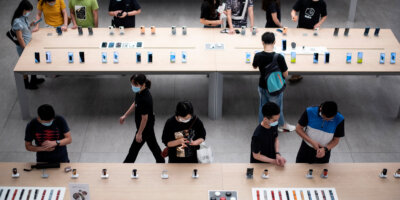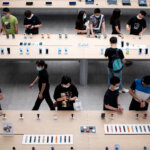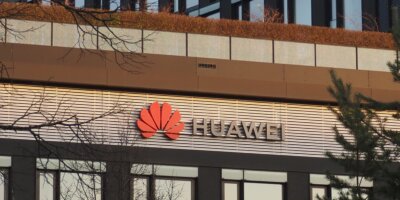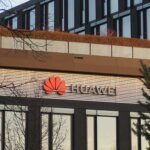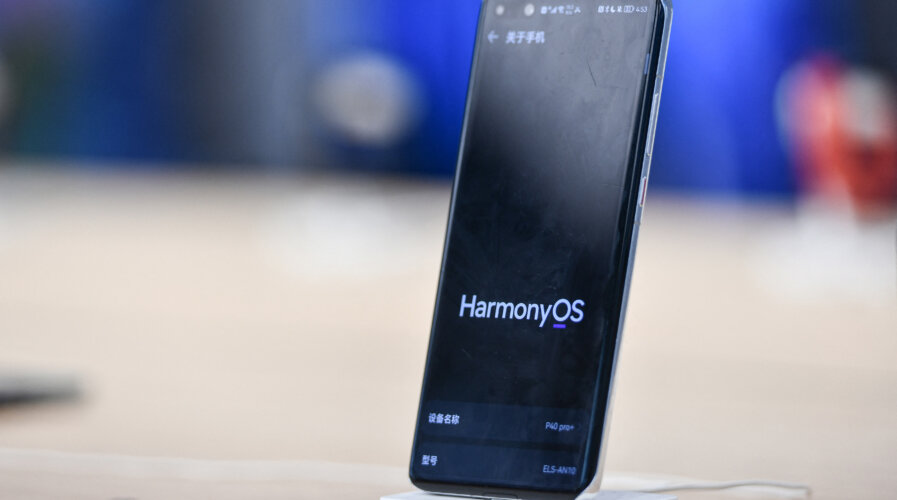
HarmonyOS is expected to surpass iOS in China, fueled by Huawei’s Mate 60 resurgence, according to TechInsights. (Photo by AFP) / China OUT
HarmonyOS set to overtake iOS in China this year
- HarmonyOS is expected to surpass iOS in China, fueled by Huawei’s Mate 60 resurgence.
- While Android and iOS will remain dominant globally, Huawei’s operating system is poised to gain traction against these giants in China’s smartphone market.
- Huawei is expected to make a solid recovery in 2024.
In a strategic maneuver responding to the challenges posed by the US government’s inclusion of Huawei Technologies Co. on its Entity List, in August 2019, the company embraced HarmonyOS as its proprietary Android alternative. Now, four years on, the unfolding narrative is reaching a pivotal moment. HarmonyOS is now on the brink of surpassing Apple’s iOS, marking a transformative milestone in the evolving landscape of China’s operating systems.
According to a report from Canadian research firm TechInsights released on January 3, although Google’s Android and Apple’s iOS will maintain their dominance worldwide in smartphone operating systems, Huawei’s homegrown HarmonyOS is expected to gain traction against these giants in China.
The HarmonyOS adoption surge has found momentum in Huawei’s unexpected, successful re-entry into the 5G smartphone arena. This resurgence began with the unveiling of the Mate 60 Pro in late August 2023, featuring a cutting-edge, domestically developed 5G chip—a bold move in defiance of US tech sanctions designed to impede access to exactly this kind of advanced technology.
Heralding the era of 5G handsets in China, Huawei’s Mate 60 Pro series is poised to impact the country’s already-vibrant smartphone market. Estimates by Counterpoint Research projected sales figures ranging from five to six million units for 2023. This optimistic outlook is rooted in Huawei’s expansive base of HarmonyOS users, fostering a robust domestic ecosystem.
Experts believe the allure of these innovative 5G devices extends beyond loyal users, drawing in fresh customers and enticing those who have ventured into other smartphone realms in recent years. As Huawei emerges from the challenges of a strained supply chain, coupled with a return to regular product launches, the company’s trajectory paints a promising picture for the times ahead.
To top it off, the company’s product lineup has seen additional growth in the past week, marked by the introduction of new smartphone models within its mid-range Nova series. In other words, TechInsights expects Huawei to make a solid recovery in 2024, incluing a gradual alleviation of the company’s supply challenges, primarily attributed to the shortages of Kirin 9000 chipsets over the next few months.
What’s next for HarmonyOS in 2024?
TechInsights believes that HarmonyOS is poised for a groundbreaking moment in 2024 with the unveiling of HarmonyOS Next, breaking away from the typical Android open source project (AOSP) code. Huawei is undergoing a significant shift by pivoting away from Android and emphasizing HarmonyOS more strongly.
This means it features its unique system architecture designed to foster the development of apps exclusively for HarmonyOS. These apps must be HarmonyOS-compatible and use Hap format installation packages. Consequently, HarmonyOS will no longer support Android apps. Huawei’s venture into uncharted territory involves the release of a developer preview for HarmonyOS Next in the first quarter of 2024, collaborating with major Chinese companies to craft native apps tailored for the system.
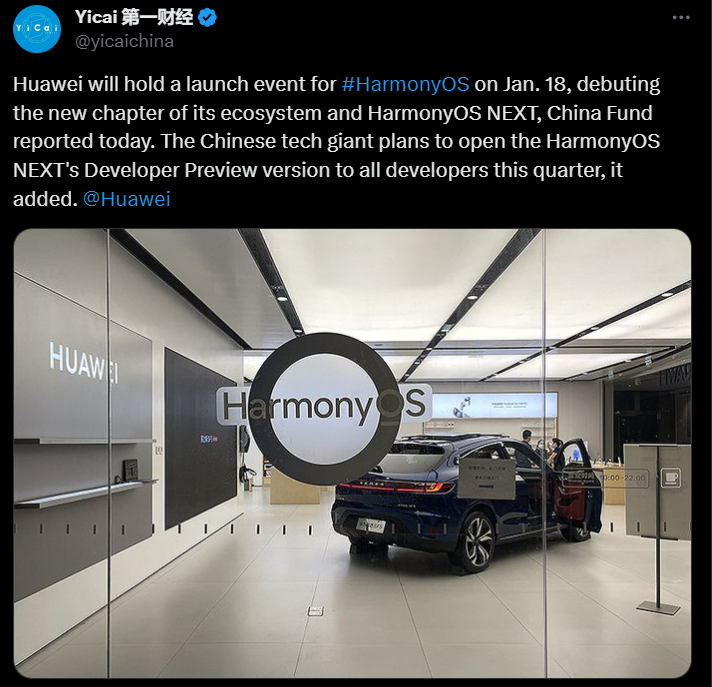
A new chapter for Harmony?. Source: X.com
Ant Group, the financial tech giant associated with Alibaba Group Holding, has already embarked on creating a new version of its mobile payment app, Alipay, based on HarmonyOS, while Alibaba is developing a revised edition of DingTalk, its workplace collaboration app, for this innovative platform.
Leading Chinese internet entities, including JD.com, NetEase, and Meituan, have begun recruiting developers to build native apps on HarmonyOS, with McDonald’s China emerging as an early adopter of HarmonyOS Next, marking a significant shift for multinational food companies in mainland China.
For TechInsights, one question lingers: will these endeavors trigger a ripple effect, propelling HarmonyOS to become the default operating system for smartphones, laptops, and cars across China? TechInsights remains watchful, noting that HarmonyOS currently powers over 700 million devices, with a robust community of more than 2.2 million third-party developers, as highlighted by Richard Yu Chengdong, CEO of Huawei’s consumer business group, during the company’s annual developer conference in August.
READ MORE
- 3 Steps to Successfully Automate Copilot for Microsoft 365 Implementation
- Trustworthy AI – the Promise of Enterprise-Friendly Generative Machine Learning with Dell and NVIDIA
- Strategies for Democratizing GenAI
- The criticality of endpoint management in cybersecurity and operations
- Ethical AI: The renewed importance of safeguarding data and customer privacy in Generative AI applications

